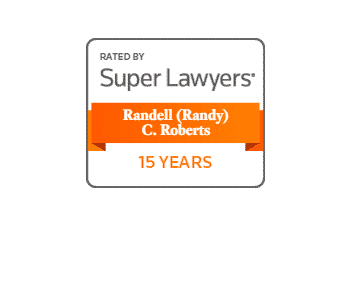Jul 17, 2023 - Personal Injury by Justin Roberts
When you’re navigating a personal injury case and considering your settlement options, it’s crucial to understand the pros and cons of each choice. While lump sum payments are the common path for most settlements and verdicts, another option worth exploring is structured settlements.
Our goal here is to provide you with an understanding of structured settlements and lump sum settlements, so you can make an informed decision that suits your specific circumstances.
As you navigate the complexities of structured settlements and lump sum payments, we encourage you to consider the information presented in this article as a starting point for your decision-making journey. Remember, the ultimate goal is to negotiate a settlement agreement that not only fairly compensates you for your injuries but also provides financial security and stability for your future.
What Is a Structured Settlement Versus a Lump Sum?
In a personal injury case, the two primary options for settlement payouts from the defendant’s insurance company are lump sum payments and structured settlements.
A lump sum payment is a single, upfront payment that represents the total amount of your settlement or court award. This means you receive the entire sum of money in one fell swoop. Typically, your attorney will deposit the settlement money into a legal trust account, deduct attorney fees and case expenses, negotiate and pay any outstanding liens, and write you a check for the rest.
With a lump sum payout, you have immediate access to the funds, allowing you to address your financial needs or invest the money as you see fit. Many injury victims find comfort in having a large sum of money at their disposal, especially if they have immediate expenses or significant financial goals.
On the other hand, a structured settlement involves spreading out the settlement amount over a specified period of time, usually through a series of regular payments. These payments can be structured in different ways, such as monthly, quarterly, or annual installments.
Structured settlements often include a combination of guaranteed payments and future lump sum payments at specific intervals. The structure of the payments is tailored to meet your individual needs, accounting for factors such as medical expenses, ongoing care, lost wages, and long-term financial security. This can offer a sense of financial stability by providing a consistent income stream over an extended period.
Lump Sum Settlement: The Traditional Option
A lump sum payment is the conventional choice for most personal injury settlements and verdicts. Let’s explore the key aspects of lump sum payments, including their advantages and potential considerations.
Advantages of Lump Sum Payments
A lump sum payment offers immediate access to the full settlement amount, providing flexibility and control over how you use the funds. It simplifies financial management and allows for tailored allocation of the settlement to address immediate needs, make important purchases, or invest for potential growth.
- Immediate Access to Funds. The significant advantage of a lump sum payment is immediate access to the full settlement amount. This can be beneficial if you have already have significant medical expenses, outstanding debts, or other pressing financial obligations.
- Flexibility and Control. With a lump sum payment, you have greater flexibility and control over how you use the funds. Whether it’s covering medical bills, rehabilitation costs, making important purchases, or investing, the choice is entirely yours. This flexibility allows you to tailor the funds to your current and future financial needs, and adapt if your needs unexpectedly change.
- Simplified Financial Management. A lump sum payment can simplify your financial management. Rather than dealing with structured payments over an extended period, you have the entirety of the settlement amount at your disposal. This streamlines your financial planning and eliminates the need to monitor ongoing payment schedules.
Considerations for Lump Sum Payments
While lump sum payouts provide flexibility, careful financial planning and management are necessary to ensure the funds are utilized wisely. Investing the lump sum carries inherent risks, and overspending can be a concern. Thoughtful financial decision-making, including seeking professional advice, can help mitigate these considerations and make the most of the settlement amount.
- Financial Planning and Management. While lump sum payments offer flexibility, they also require careful financial planning and management. It’s essential to consider your long-term financial goals and create a comprehensive plan to ensure the funds are used wisely. Seeking guidance from financial professionals can help you make informed decisions and maximize the benefits of a lump sum payment.
- Investment Risks. Opting for a lump sum payment means taking on the responsibility of investing the funds, if you so choose. Investments come with inherent risks, and the potential returns vary based on market conditions. It’s important to assess your risk tolerance, seek professional advice, and make informed investment choices to mitigate potential risks.
- Potential for Overspending. Without the structure and limitations of regular payments, there is a risk of overspending with a lump sum payment. It’s important to carefully consider your financial needs, create a budget, and exercise discipline to ensure the funds last and provide ongoing financial security.
While lump sum payments have long been the traditional choice, it’s worth assessing their suitability for your particular needs and situation.
The Pros and Cons of Structured Settlements
Structured settlements offer several advantages that make them an attractive option for many injury victims. Understanding these benefits can help you evaluate if a structured settlement truly aligns with your financial goals and long-term needs, and is worth considering or pursuing.
- Stable Income Stream. One primary advantage of a structured settlement is the assurance of a stable income stream. Through regular, predetermined payments, structured settlements provide a reliable source of income over a specified period. This steady stream of payments can help cover ongoing medical expenses, replace lost wages, and ensure financial stability for the future.
- Tax Benefits. Structured settlement payments may come with tax advantages. While it is true that most of the money obtained in personal injury settlements is tax free regardless of the payment schedule, you may have to pay taxes on a portion of your settlement (for example, if you were awarded punitive damages). Structuring your settlement payments may allow you to reduce or eliminate these tax obligations. Consulting with a tax professional can help you fully understand the potential tax benefits of a structured settlement.
- Financial Security. By structuring your settlement, you can prioritize long-term financial security. Structured settlements are designed to meet your specific needs, considering factors such as anticipated medical expenses, ongoing care requirements, and future financial obligations. This tailored approach ensures that you have a financial safety net in place, providing peace of mind for years to come.
While structured settlements offer many benefits, it’s important to consider the potential disadvantages they may entail, such as:
- Lack of Flexibility. One notable disadvantage of structured settlements is the limited flexibility they provide. Once the structure is established, it may be impossible to modify the payment schedule or access a larger portion of the settlement funds. If your financial circumstances change and unexpectedly need immediate access to a significant sum of money, you may not be able to obtain it.
- Potential for Inflation Impact. Another factor to consider is the potential impact of inflation on future structured settlements payments. It’s crucial to carefully evaluate and account for future expenses and consider how inflation may impact their value over time.
- Restrictions on Transfers. Structured settlements generally come with restrictions on transferring or selling your future payment rights. While this ensures the long-term financial security intended by the settlement, it can limit your ability to access a lump sum of cash in certain circumstances. It’s important to weigh this limitation against your individual financial goals and needs.
Understanding the advantages and disadvantages of structured settlements is crucial in making an informed decision about your personal injury case.
Scenarios Where a Structured Settlement Might Make Sense
While lump sum payments are the traditional option for personal injury settlements, there are scenarios where a structured settlement might be a more suitable choice. Consider the following situations where structured settlements can offer distinct advantages:
- Need for Long-Term Financial Security. If you require ongoing financial support for medical care, rehabilitation, or other long-term needs, a structured settlement can provide a reliable income stream. This ensures a steady flow of funds over an extended period, helping to secure your financial well-being.
- Future Income Replacement. Structured settlements are particularly advantageous when there is a need for future income replacement. For instance, if your injury has left you unable to work, structured payments can serve as a substitute for lost wages, ensuring a regular income stream to support your living expenses.
- Mitigating the Risk of Overspending. If you are concerned about the potential for overspending a lump sum payment, a structured settlement can help address this issue. By receiving regular payments over time, you have a structured financial plan that helps manage and preserve the settlement funds for the long term.
- Passing on Settlement Funds to Heirs with Fewer Complications. Structured settlements can provide a means to pass settlement funds to heirs with fewer complications. By structuring the payments, you can set up provisions to continue the payments to your heirs or designate beneficiaries, ensuring a smooth transfer of financial benefits.
- No Large, Upcoming Expenses or Bills That Are Due. If you do not have immediate significant expenses or bills that require payment, a structured settlement can offer financial stability without the need for an immediate lump sum. This allows you to carefully plan and manage your finances over time, ensuring the funds are available when you need them most.
Considering these scenarios and evaluating your specific needs and financial goals will help determine whether a structured settlement is the right choice for your personal injury case.
Choosing the Right Option for You
When deciding between a structured settlement and a lump sum payment, it’s important to carefully evaluate your unique circumstances, financial goals, and long-term needs. While this guide hopefully gives you a solid overview, consulting with experienced attorneys and financial professionals is highly recommended. We can offer invaluable guidance and help you navigate the complexities of personal injury settlements so you can make an informed choice that aligns with your best interests.
At Roberts & Roberts, we have been advocating for injury victims in Texas for over four decades. Our team of skilled attorneys understands the intricacies of personal injury cases and can provide the support you need to make the right decisions. We have a proven track record of successfully representing clients and maximizing their recovery.
Whether you’re considering a structured settlement or a lump sum payment, we are here to assist you every step of the way, ensuring that your rights are protected, and your interests are prioritized.
Trust Roberts & Roberts: Your Partner in Pursuing Fair Compensation
If you need legal assistance or have questions about the best approach for your personal injury case, we invite you to reach out to us for a consultation. You can contact Roberts & Roberts by calling (903) 251-2873 or contacting us online to schedule your consultation and take the first step towards securing the compensation you deserve.
The content provided here is for informational purposes only and should not be construed as legal advice on any subject.
Justin is an attorney at Roberts & Roberts and focuses his practice on mass tort litigation, where he specializes in helping individuals who are harmed by recalled or unsafe pharmaceutical drugs and medical devices. He has earned recognition as a “Top 40 Under 40” Trial Lawyer by the National Trial Lawyers. Prior to joining Roberts & Roberts, Justin served as an attorney in all three branches of Texas’s state government, including as a Briefing Attorney on the Texas Supreme Court. He also represented electric and natural gas utilities in complex regulatory proceedings before the Public Utility Commission of Texas and the Railroad Commission of Texas. Justin is a published author in the St. Mary’s Law Journal.









